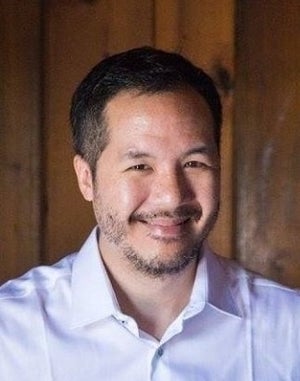It’s about ecosystems, not about old vs young

Professor Tajuddin Rasdi wrote an extremely thought provoking article, titled: “Anwar Ibrahim, old politics, and the struggle for a new Malaysia”.
This quote perhaps summarises Tajuddin’s key argument:
“Like it or not, we have to allow Anwar Ibrahim to manage the change from the old to the young.
“He will need help from old guards like Shafie Apdal, Abang Johari and yes, even Tok Mat from Umno.
“Anwar is the only one with the Malay and Islamic credentials to change Malaysia and the Malays with the help of other old guards while inserting young bloods like Rafizi, Shahrin, Syed Sadiq and others to take over.”
In short, while I agree with much of Tajuddin’s analysis, arguments, and observations, I think I respectfully disagree with his overall conclusion.
I think Tajuddin is right to point out that we shouldn’t treat the older generation of politicians as completely useless, with nothing useful at all to contribute.
Tajuddin believes this because in his view, they are in fact still the best choice available to lead Malaysia.
I agree that we shouldn’t consider that generation of politicians to be completely useless; but I believe this mostly because I feel there isn’t a single group or category of Malaysians who are ‘completely useless’ and have nothing to contribute.
I probably disagree, however, that the older generation of politicians mentioned above are the best choice to lead Malaysia forward to a better future. I disagree even more strongly that they are the ‘only’ choice.
Tajuddin believes that the younger generation of politicians are also not the best choice to lead Malaysia forward. He put it in a colourful way:
“Correcting the MACC, the police, the judiciary and the universities requires an old Malay Islamic hand. Rafizi, Nurul and Howard tak boleh buat punya! Not possible!”
The phrase ‘an old Malay Islamic hand’ may offend some sensibilities, in what some describe as today’s ‘woke culture’. On the whole however, I believe Tajuddin is more right than wrong in this case.
I have different views regarding who is ‘qualified’ to fill this role however. I think Tajuddin feels only established politicians can qualify. It may be naive of me, but I believe the pool of people able to accomplish this task may be wider than that.
As to his second conclusion, I won’t speak directly as to whether those three specific individuals can or cannot solve those four specific problems.
I do get the impression however that Tajuddin believes that Malaysia is not ready for leaders like the three mentioned because they are too young and do not carry enough weight.
I, on the other hand believe young politicians might not be the best choice because (and this is a gross oversimplification for the sake of brevity) they are politicians who are born and bred in the culture of our major political parties.
It’s important to say that this is in no way a personal criticism against any young leaders. My only observation is that their actions and trajectory is often (not always) most significantly determined by the system and culture from which they have emerged.
I have long felt that people tend to oversimplify the factor of age. When looking at the many problems Malaysia faces, perhaps too many of us have relied on the shorthand: “We need younger leaders.”
Firstly, I agree that we do need younger leaders. It’s just that I don’t think ‘younger leaders’ are a silver bullet in and of themselves.
I believe what we need are better, newer leaders. And I believe ‘better’ and ‘newer’ can come from both the young and the old.
Much more importantly however, I think what Malaysia truly needs is: a new ecosystem.
Even the most honest, sincere, and intelligent leader will never go far, if said leader remains trapped in the toxic ecosystem that is today’s political landscape in Malaysia.
A vibrant, fully functioning, well thought out ecosystem is vital to produce and nurture the type of leaders that Malaysia really needs.
Much like it takes a village to raise a child, it takes an ecosystem to produce a good leader.
(I know nice words like the ones above and below are easy to throw about, and that the devil is always in the details. My most ardent hope is that my colleagues and I will be able to show both the proof and the pudding in good time. If all goes well, we will soon provide some details, and ways to bring Malaysians together to help build better.)
In thinking about this ecosystem, there were a number of other points in Tajuddin’s article that I felt deserved attention.
Firstly, Tajuddin refers to Malaysia’s linguistic divide. Specifically, he talks about how Malaysian civil society can be divided along linguistic lines - English speaking, Malay speaking, Chinese speaking, Tamil speaking, East Malaysia based, and so on.
I completely agree that these divides are a huge hindrance to the type of grassroots unity we need to fix Malaysia’s problems. It is a problem that many talk about, but do not do enough to solve.
Tajuddin also references the toxicity and what I sometimes refer to as ‘budaya maki hamun’ that tends to dominate Malaysian public discourse.
Here, I also strongly agree. We are too used to loose tongues engaging in all out verbal wars with no strategic thinking whatsoever about whether these ‘debates’ actually contribute to building the Malaysia all of us are yearning to live in.
And let’s not even get started about how many pointless, self-indulgent debates that go nowhere happen on Whatsapp groups.
Tajuddin rightly points out that the lack of sensitivity and thoughtfulness on all sides in these very toxic, often pointless arguments is a key factor in keeping Malaysia stuck in vicious cycles.
All the above are just a few of the major problems that must be addressed in order for Malaysia to truly move forward.
In pursuing such forward movement, Tajuddin is still optimistic that political parties and the old political guard should play a key role.
This is a very reasonable view, and one that is not at all unexpected.
After all, if you look back at Malaysia’s history, and the dominant role that political parties have always played, surely it is reasonable to conclude that they can and must continue to play such a big role.
I don’t consider myself either ‘young’ or a ‘leader’. I’m middle aged enough to be experiencing a never ending slew of very cliche mid life crises.
But I might just be young enough to still believe that things don’t always have to be the way they’ve been - that a different way can not only be imagined, but forged.
Working with one notable previous employer introduced me to a phrase I liked: ‘fit for purpose’.
Simply put, Malaysia’s major political parties (and by extension, to a large extent, the people that ecosystem produces) are no longer fit for purpose.
The deeply ingrained culture, incentive structure, and entire ethos of Malaysia’s major political parties have long ceased to be a net positive value add to Malaysia, and are instead arguably the precise source of Malaysia’s biggest problems.
I could write entire essays (or perhaps already have) describing how and why this is so, but I don’t think this is hard for any observer of Malaysian politics to see.
What is hard however, is imagining alternatives.
There was a particular phrase in the first passage I quoted above earlier that represents a sentiment I have always found deeply disturbing:
“Anwar is the only one”.
Tajuddin chose Anwar in this case. But for others, it’s “Mahathir is the only one”. For others yet, “Najib is the only one.”
For me: no one is the only one.
This is not The Matrix. There is no ‘the one’. There is ‘the many’. There is us.
Some people feel like we have been speaking the names of people like Mahathir or Anwar for too long.
I wouldn’t be surprised at this point, if some people actually feel like we have been speaking the names Rafizi, Nurul Izzah, or Syed Saddiq for too long now too.
I think the real issue is that as long as we keep trying to focus on the names of individuals, we will still not have found what we’re looking for.
If you too want a better Malaysia, then the question we need to ask ourselves is not: who should lead us?
The question we need to ask is: How can I help to lead Malaysia?
NATHANIEL TAN works with Projek #BangsaMalaysia. Twitter: @NatAsasi, Email: [email protected]. #BangsaMalaysia #NextGenDemocracy.
The views expressed in this article are the author's own and do not necessarily reflect those of Sinar Daily.











